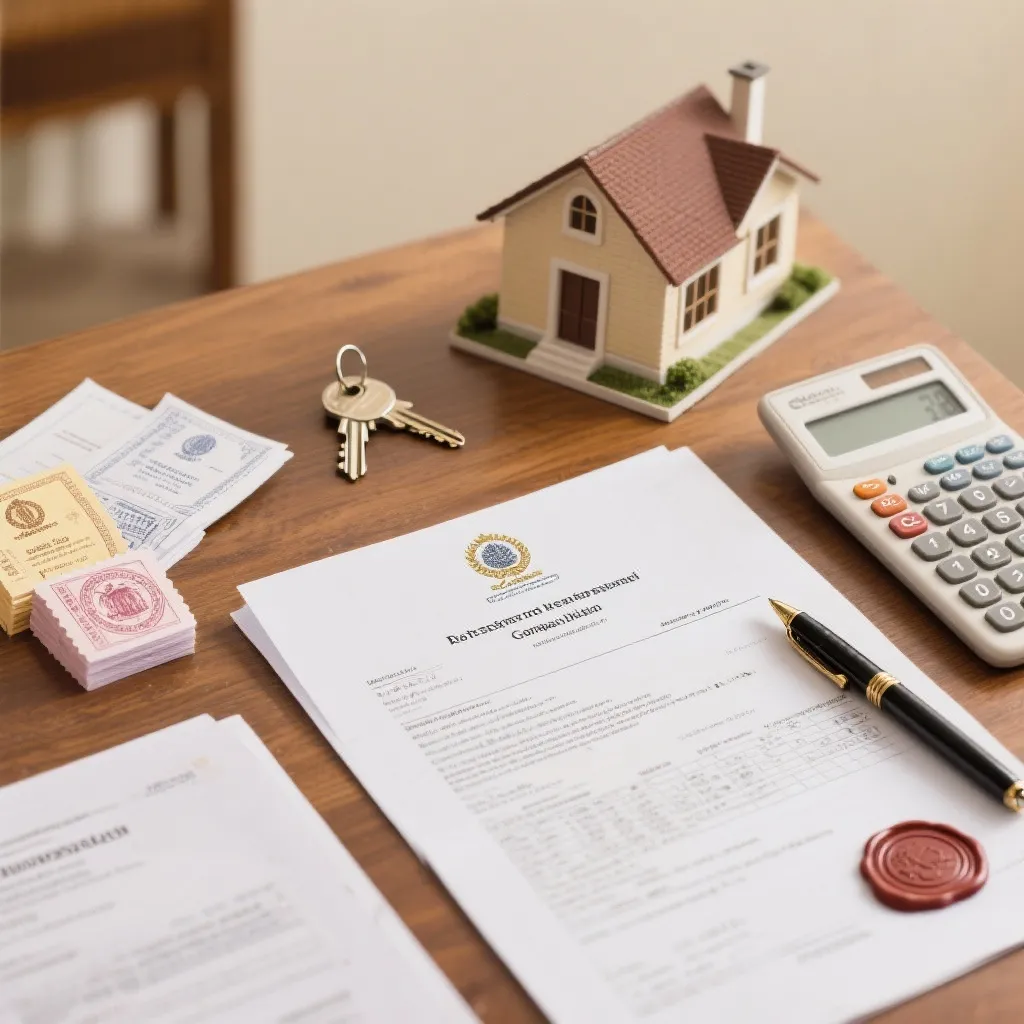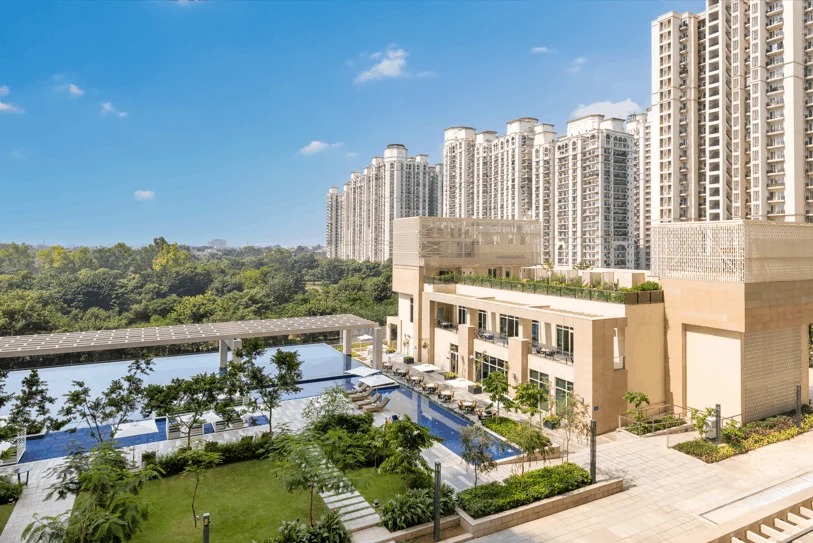

Buying a property in Gurgaon one of India’s most premium real estate markets is a significant financial and legal milestone. However, property registration in Gurgaon, under the jurisdiction of Haryana state laws, requires precise documentation and adherence to procedural norms.
To ensure your investment is secure and legally valid, it's essential to understand which documents are required and how the registration process works in Haryana.
Property registration is a legal process that records the ownership of a property in the government’s land records. It acts as evidence of ownership and protects your rights as a buyer. In Gurgaon, registration is governed by the Registration Act of 1908 and managed by the Department of Revenue, Government of Haryana.
Whether you’re buying a residential flat, plot, or commercial space, here are the must-have documents for smooth registration:
1. Sale Deed (Original + Copy)
2. Proof of Ownership
3. Encumbrance Certificate
4. Government-Issued ID & Address Proof
5. Photographs
6. Power of Attorney (if applicable)
7. NOC from Builder/Society
8. Stamp Duty & Registration Fee Receipt
9. Allotment Letter & Possession Certificate (For New Properties)
Additional Documents (Depending on Case)
Quick Tip: Stamp Duty in Gurgaon, Haryana
Stamp duty in Gurgaon varies based on factors like:
It generally ranges between 5% to 7% of the transaction value, plus 1% registration charges.
Planning to buy or register a property in Gurgaon this year? Here’s everything you need to know about the latest stamp duty rates and property registration charges in Gurgaon for 2025. This quick guide covers the applicable rates for men, women, and joint ownership, along with how registration fees are calculated for urban and rural properties.
| Parameter | Details |
| Stamp Duty in Gurgaon | Urban areas (municipal limits): 7% for men, 5% for women, 6% for joint ownership |
| Rural areas (outside municipal limits): 5% for men, 3% for women, 4% for joint ownership | |
| Registration Charges in Gurgaon | Fixed at ₹100 for properties valued up to ₹50,000 |
| ₹500 for ₹50,001 to ₹1,00,000 | |
| ₹1000 for ₹1,00,001 to ₹5,00,000 | |
| ₹5000 for ₹5,00,001 to ₹10,00,000 | |
| ₹10,000 for ₹10,00,001 to ₹20,00,000 | |
| ₹12,500 for ₹20,00,001 to ₹25,00,000 | |
| ₹15,000 for ₹25,00,001 to ₹30,00,000 | |
| ₹20,000 for ₹30,00,001 to ₹40,00,000 | |
| ₹25,000 for ₹40,00,001 to ₹50,00,000 | |
| ₹30,000 for ₹50,00,001 to ₹60,00,000 | |
| ₹35,000 for ₹60,00,001 to ₹70,00,000 | |
| ₹40,000 for ₹70,00,001 to ₹80,00,000 | |
| ₹45,000 for ₹80,00,001 to ₹90,00,000 |
Property registration in Gurgaon is handled at the sub-registrar office located in the jurisdiction where the property is situated. Ensure you book an online appointment via the Jamabandi Haryana portal and carry all original documents along with photocopies.
Final Checklist Before Registration Day
Conclusion
Proper documentation is the foundation of a secure and hassle-free property registration process in Gurgaon. Missing even one document can delay or invalidate the transaction. Whether you're a first-time homebuyer or a seasoned investor, having the right paperwork ensures that your property is legally yours, with full protection under the law.
1. What are the essential documents needed for property registration in Gurgaon?
Ans: Essential documents needed for property registration in Gurgaon are identity proof, address proof, sale deed, title deed, Encumbrance Certificate, approved building plan, GST receipt (if applicable), stamp duty and registration fee receipts, NOCs from relevant authorities, mutation records, Completion Certificate, Occupancy Certificate, society NOC, Power of Attorney (if applicable), and loan-related documents.
2. Is Aadhaar card mandatory for property registration?
Ans: Yes, Aadhaar card is mandatory for property registration, since it serves as the most important government-issued identity proof for both buyer and seller.
3. What is the role of sale deed in property registration?
Ans: The role of sale deed in property registration is to officially record the transfer of ownership between buyer and seller, making it the primary legal document required to validate the transaction under the law.
4. How much are the stamp duty and registration charges in Gurgaon?
Ans: Stamp duty and registration charges in Gurgaon are calculated based on gender(s) of buyer(s) and property location, with stamp duty ranging between 3% and 7% and registration charge fixed at ₹15,000.
5. Do I need No Objection Certificate (NOC) for property registration?
Ans: Yes, you may need No Objection Certificate (NOC) for property registration in Gurgaon, to confirm that there are no legal, financial, or structural objections from the developer, society, or municipal authorities against the property being sold.
6. What is Encumbrance Certificate, and why is it required?
Ans: Encumbrance Certificate is required as it confirms that the property is free from existing loans, disputes, or liabilities – thereby ensuring a clear and marketable title for the buyer.
7. Can property registration be done online in Gurgaon?
Ans: Property registration in Gurgaon cannot be completed entirely online. While stamp duty payments and appointment bookings can be done digitally, physical presence at Sub-registrar’s Office is mandatory for verification and execution.
8. How long does the property registration process take?
Ans: Property registration process Gurgaon usually takes 1-2 working days after appointment confirmation, provided all documents are accurate and verification is completed without issues.
9. What happens if a property is not registered?
Ans: If a property is not registered, the buyer does not receive legal ownership rights, and the transaction remains invalid, restricting the ability to resell, obtain loans, or claim legal possession.
10. Can an NRI register a property in Gurgaon remotely?
Ans: An NRI can register a property in Gurgaon remotely, by authorising a trusted individual through legally registered Power of Attorney to appear on their behalf at the Sub-registrar’s Office.
11. What are the current stamp duty charges in Gurgaon for men and women?
Ans: According to 2025 legislation, men pay 7% stamp duty while women only incur 5%, with registration charges remaining 1% of property value regardless of who purchases their property.
Disclaimer: This blog has been written exclusively for educational purposes. The information mentioned are only examples and not recommendations. It is based on several secondary sources on the internet and is subject to changes. Please consult an expert before making related decisions.
 (1).webp)


